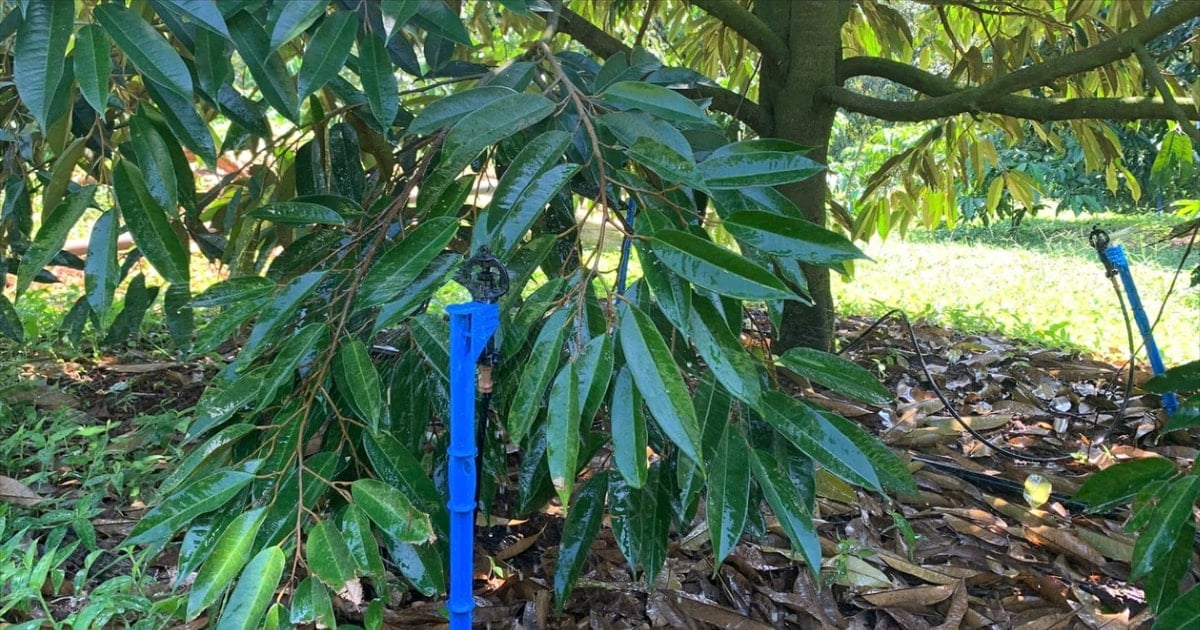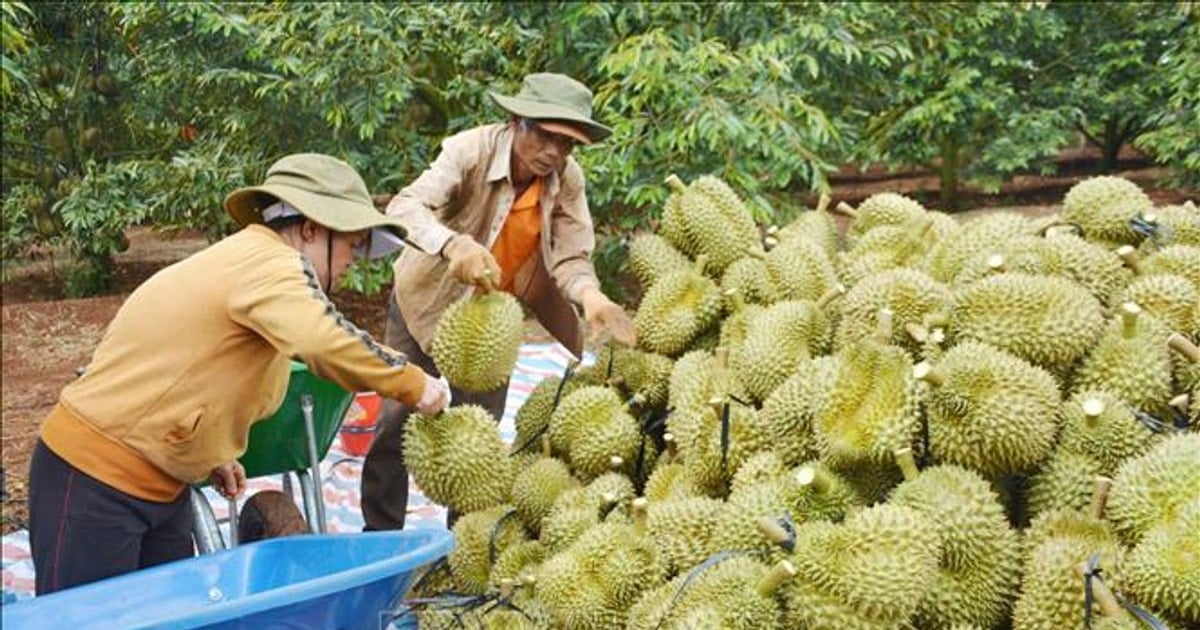Entering the dry season this year, many coffee growing areas in the province are facing many difficulties due to intense heat, the risk of water shortages and many emerging pests.
.jpg)
Mr. Nguyen Van Kien’s family in Nghia Duc Ward, Gia Nghia City has nearly 2.5 hectares of coffee. In recent days, Mr. Kien’s coffee garden has been infested with mealybugs that are damaging young fruit.
Mr. Kien said: “Every year, at this time, due to the erratic weather, it creates a favorable environment for pests to appear in the garden. The most common of these is mealybugs that harm young fruit.”
According to Mr. Kien, with many years of experience growing coffee, he has never seen a situation where mealybugs are as difficult to control as they are now. Normally, he sprays pesticides about 3 times/crop and there are no signs of mealybugs. However, for nearly 2 months, every 4-7 days, he sprays pesticides once, but mealybugs are still scattered, hiding in the stems of young coffee fruits.
.jpg)
“There is a possibility that mealybugs are resistant to the drug. If not sprayed thoroughly, the mealybugs will reappear after a few days. Therefore, although it takes a lot of effort, I still find ways to prevent it, to limit the spread of mealybugs throughout the garden,” Mr. Kien added.
Meanwhile, Mrs. Le Thi Nhan's family in Quang Tin commune, Dak R'lap district cultivates more than 2 hectares of coffee intercropped with pepper. Currently, Mrs. Nhan's coffee garden is also not immune to mealybugs and harmful fungi.
In Mrs. Nhan’s coffee garden, not only are the coffee plants damaged by aphids, but many pepper plants are also infected. The infected pepper plants also have traces of algae, leaf spots, and leaf burn, affecting the growth and development of the garden.
.jpg)
According to Mr. Pham Tan Minh, Dak Nong Agricultural Extension and Forestry Seed Center, entering the dry season, pests and diseases in pepper gardens are insignificant. However, signs of disease may appear from the remaining rainy season or spread from coffee gardens.
Mr. Minh said: “If mealybugs are found to be causing damage to coffee and pepper gardens, farmers need to use two-way systemic pesticides to effectively treat the garden. However, when using pesticides, gardeners should be careful not to spray them en masse but to spray them locally on diseased plants.”
According to the recommendations of the Dak Nong Provincial Department of Agricultural Development, to effectively prevent pests and diseases during the dry season, farmers need to conduct garden sanitation combined with timely pruning and canopy shaping. In addition to pruning, watering and adding balanced phosphate and potassium fertilizers will help increase fruit set rate, resist pests and diseases and adapt to unusual weather during the dry season.
.jpg)
At the same time, it is necessary to regularly visit the garden to detect early the appearance of aphids, the density of aphids on the tree to have early, timely and effective prevention solutions. When watering, farmers can combine using a high-pressure water hose to spray strongly on branches and fruit clusters with mealybugs to wash away the waxy powder and black soot of the aphids; then spraying will be more effective.
When using drugs, farmers can combine biological drugs such as Abamectin, tricolor fungus... to spray in gardens with low aphid density.
For gardens with high mealybug and leaf-eating caterpillar density, chemical pesticides should be used according to the “4 rights” principle (right drug; right dosage, concentration; right time; right method) to spray evenly on the plants. The pesticides need to be mixed according to the recommended concentration to spray enough amount of pesticide water and spray thoroughly on the fruit clusters and branches damaged by mealybugs; spray again after 7 days.
Source: https://baodaknong.vn/cach-phong-tru-sau-hai-cho-cay-trong-trong-mua-kho-247829.html





























![[Photo] "Beauties" participate in the parade rehearsal at Bien Hoa airport](https://vstatic.vietnam.vn/vietnam/resource/IMAGE/2025/4/11/155502af3384431e918de0e2e585d13a)



































































Comment (0)